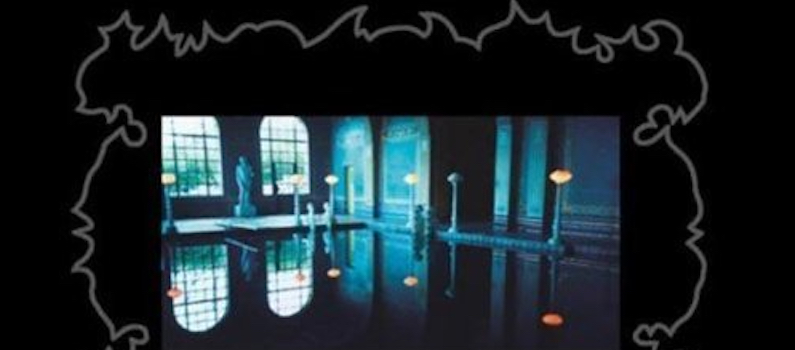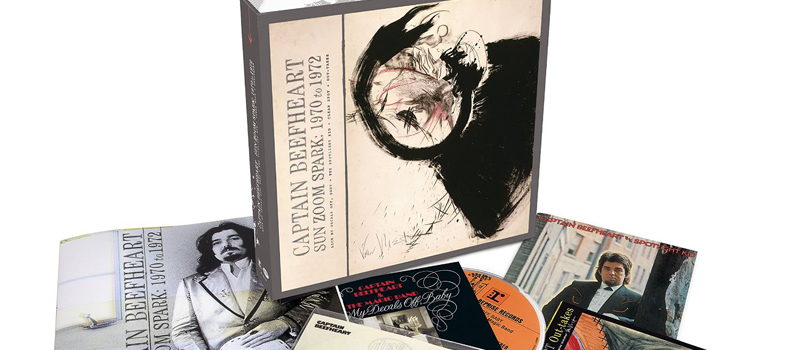The years following the break-up of Slint were interesting ones for Brian McMahan. Born from the ashes of seminal punk rock outfit Squirrel Bait, Slint cut its teeth on intricate and inventive noise rock, releasing their first record, Tweez, on Jennifer Hartman Records in 1987.
It was in the band’s later years, however, that Slint found its wings, breaking new ground in a highly-emotive genre of unconventional rock music that depended as much on silence and the dynamics of time as it did on crafty guitar crescendos and surreal lyrics. Shortly after the release of the landmark Spiderland (1991, Touch-N-Go), however, the band called it quits.
Immediately following Spiderland, McMahan remained somewhat dormant and it was several years before The For Carnation, his latest venture, was born.
It was not until earlier this year, however, that The For Carnation truly made good on all of its potential, releasing their strongest record to date, the self-titled The For Carnation (2000, Touch-N-Go Records).
While the lilting guitar melodies and restrained, hushed tones of the band’s two previous records, Fight Songs (1995, Matador Records) and Marshmallows (1996, Matador Records), are still prominent, the band’s latest offering shines most when it chooses to flesh out the subtleties of their sound.
The album’s opener, “Emp. Man’s Blues,” begins with two subtle notes on a keyboard hanging in near-silence and slowly expands into a fully-formed composition with keyboard, guitar, bass, drums, and samples being punctuated by the soft strains of a viola, courtesy of guest musician Christian Frederickson (Rachel’s). By the song’s close, the notes on the keyboard are still present, eerily suspended in mid-air, but they are surrounded by a world of other elements. Todd Cook’s bassline weaves around Michael McMahan’s bluesy guitar riff; Bobb Bruno’s eerie samples peek through streams of notes from cello and acoustic bass.
While The For Carnation’s back catalog includes bold attempts to build emotive songs out of this slow unearthing of various musical elements, these six new songs do it in such an instinctive manner that the notes seem to have a life all their own.
The album’s last song, “Moonbeams,” is the most tender and touching piece that McMahan has penned with a band in years, on par with the dynamic shifts and somber plodding of Spiderland’s epic “Washer.” The piece begins, again, only with spare notes, this time on a guitar, and slowly unfolds to reveal a worthy closing to an album filled with inventive and shape-shifting music.
What really holds the record together, however, is McMahan himself, his voice being one of the record’s most prominent – and effecting – features. Though the music of the record moves from subtle and restrained (“Emp. Man’s Blues”) to menacing (“A Tribute To”) to majestic (“Moonbeams”) without fail, it is McMahan’s voice that demands the listener’s attention most.
The inflection in his near-whispered delivery and the content of his mystery-laced nightscape of lyrics often come to define the songs. And while the instrumental track “Being Held” (featuring Slint drummer, and former For Carnation member, Britt Walford) is strong and Todd Cook’s intense, slithering bass-line in “A Tribute To” is priceless, it’s almost impossible to imagine a song like “Moonbeams” without McMahan’s voice leading the way.
The album was mixed by Chicago-based underground icon John McEntire (Tortoise, The Sea and Cake, Gastr del Sol) and the attention to detail for which he is becoming known as an engineer works well with The For Carnation’s newest set of songs, their most structured to date.
During “A Tribute To,” the driving force of the bass and drums falls to the background amid ambient waves and occasional notes on a piano as McMahan whispers, “Whose moon is it shines down on me on the roofs they call our homes? / Whose guards is it keep watch on me to ensure our blood will roam?”
As soon as the line is delivered, McEntire fades in a single, piercing note on the keyboard from near-silence and the bass and drums are snapped right back into the mix, a kind of sneer following the subdued tone of McMahan’s voice. While the band has effectively used samples and spare sounds to compliment the overall mood of their songs in the past (bleeps on a sonar accompanied the disturbing lyrical content of Marshmallow’s “Salo”), the craftsmanship on the new record is miles beyond the majority of their previous work.
“So partial to memory, the pearls of our dead / But where do we keep them? Put ‘em here by the steps / While I climb to the top and I find where I am,” McMahan sings near the end of “Moonbeams,” his voice giving way to a rising tide of guitars, drums, and strings, the kind of deluge of sound that is all the more overpowering after a record that depends so much upon silence, subtlety and the structure of restraint.
Ten years ago, Brian McMahan was working on songs that would eventually appear on Spiderland, and, since then, he seems to have focused most of his energies on breaking down Slint’s more rock-oriented dynamic elements. On The For Carnation, we hear a band that has matured immensely since its last release, penning inventive and touching compositions, and expanding simple – and often times, subtle – elements into incredibly structured and emotive soundscapes.
One can only anxiously wait to see what the next ten years will bring. – The Montclarion, Sept. 7, 2000




